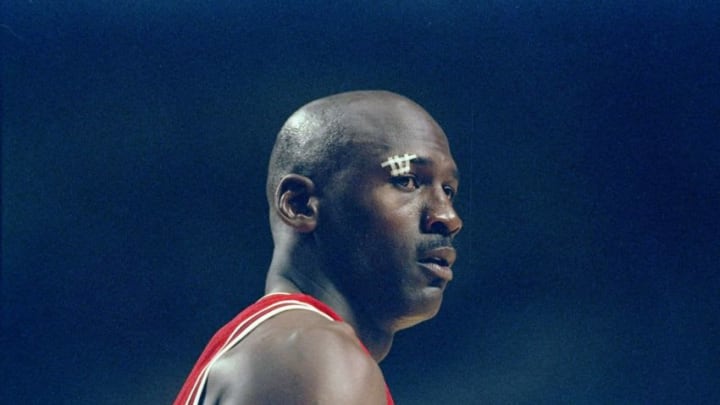Remembering how a Michael Jordan offseason injury would’ve complicated a 1998-99 Chicago Bulls season
One of the biggest revelations in ESPN’s “The Last Dance,” which chronicled Michael Jordan‘s final season with the Chicago Bulls during the 1997-98 season, revolved around the idea that Jordan said he would’ve signed a one-year deal to play during the 1998-99 season in Chicago.
The Bulls never offered Jordan or the rest of the core an opportunity to return. Phil Jackson was offered but he declined. I’m not sure what would’ve happened if Phil was willing to come back, but Jerry Krause and the Bulls were pretty set on beginning a rebuild after winning six championships in eight seasons.
Nevertheless, it’s easy to see why many would’ve been angry to find out that Jordan wanted to keep the dynasty going – or at least give a seventh NBA Championship a shot.
One element that is often forgotten, however, is the fact that there’s a good chance that Michael Jordan wouldn’t have even been healthy to play during the season.
For the 4-peat what ifs: They didn't mention Jordan slicing his finger with the cigar cutter during the lockout. He played at the Bob Hobe golf classic in 99 and he couldn't bend his index finger to properly grip the golf club.
— J.A. Adande (@jadande) May 18, 2020
Then again, maybe Jordan never suffers the injury during the offseason if he knows he’s going to return to the Bulls? Who knows, but there’s at least a chance that Jordan would’ve been forced to take a season off.
At that point, it would’ve taken at least a two-year commitment from both Jordan and the Bulls to make it work. I’m not sure that’s something either side would’ve been in love with. At the same rate, perhaps another break from the game would’ve helped Jordan.
Another aspect to look at, if Jordan misses the 1998-99 season, what does that mean for the rest of the core – Scottie Pippen, Steve Kerr, and Dennis Rodman? Do the Bulls also make a two-year commitment to them?
These are the big questions that are almost impossible to answer. However, had the Bulls remained together, there’s at least a chance that a Michael Jordan offseason injury would’ve thrown a wrench in all their plans.
Maybe it’s best that the Bulls’ dynasty ended as it did. Leaving on top is always better than leaving on the bottom or on the losing side.
